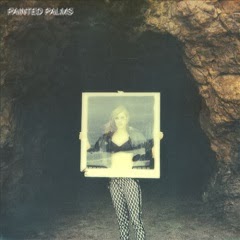Innocence
27 January 2014
Thrill Jockey
3 stars out of 5
Pontiak is three brothers (Jennings
The title track introduces the album’s fuzzed-out bass,
guitar, and drums attack with an unhinged immediacy. By the third track,
“Ghosts,” things have slowed down with each song but have increased in volume
and intensity by increments. “It’s the Greatest” brings things down to a crawl
as Pontiak concentrate on their more introspective side, throwing a
vintage-sounding organ into the mix. By the time track number five comes along,
we are greeted with acoustic guitar and vocal harmonies, and the energy has disappeared from the record. In the meantime, in
case you were wondering, what we’ve heard so far have been some fairly standard
verse-chorus-verse constructions, competently enough constructed and performed,
but lacking in anything special to set Pontiak apart from a zillion other bands
doing this same thing. Then comes “Surrounded by Diamonds,” a metal tune that
Black Sabbath would have been proud to have written in the early 1970s. Though
not especially spectacular, it’s got aggressive, meaty riffs and the swagger to back them up.
“Beings of the Rarest” is more of the same, and in a good way. “Shining” is the
most interesting song on the album, still in Paranoid mode, but with an epileptic drum beat that follows the
deranged bass line into some interesting and enjoyable places.
Pontiak is a good band in need of better songwriting. I’m
not implying that every remotely indie rock band out there needs to go to
Slint-like lengths to turn their compositions inside out; I’m merely suggesting
that the brothers Carney push themselves a bit more when they sit down to
write. All the ingredients are here for a very exciting band. I’m just waiting
for them to excite me.
reviewed by Richard Krueger














